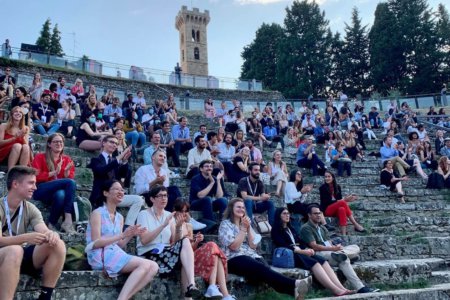The study of economics has always been important to our society. As a social science, the subject is ideally placed to straddle science and the humanities, utilising data-driven results to predict and understand human behaviour.
The right economic policies can do wonders for a developing society. For example, a revision of economic policies helped lift more than 200 million people out of poverty in China and materially improved the lives of around 2.6% of the world’s population. Economists help reduce inefficiency and propel growth – and because of this, they’re always in high demand.
Driving the work of economists is teaching and research tackling the unique problems faced by different global regions. In the case of Europe, the European University Institute (EUI) is a significant contributor. As a leading institute in Europe dedicated to the social sciences and humanities, EUI is focused on advancing the cultural and scientific development of the continent through research.
Today, it is also home to a brand new one-year Master of Research in Economics, which is tuition free for candidates from EUI’s contracting states and the UK.

Situated in Fiesole, Italy, EUI is surrounded by gorgeous vistas steeped in history. Source: European University Institute
It’s only natural, then, that many students across the region choose to pursue their studies in economics at the institute’s Department of Economics. Accolades include an impressive rank of 15th in the world for graduates’ publication success, making it a leading hub in the field. It runs one of the best doctoral programmes in Europe too.
“The main goal of the Master of Research in Economics is to prepare students for the practice of research skills which would be utilised in a PhD programme or within employment,” shares Professor Russell Cooper, Director of Graduate Studies at the Department of Economics. “Through this, we hope to broaden our set of students whilst simultaneously offering a complement to our PhD programme in Economics.”

Students are screened through a highly selective process to maintain a competitive academic environment. Source: European University Institute
Applicants for the Master of Research in Economics are screened through a highly selective process. Preference is given to students with a master’s degree and a strong academic record. The cohort will be recruited from a wide range of countries within Europe, the US, and China, among others, providing for a truly diverse community to learn and grow with.
The result? An intelligent and driven network of students, each bringing their unique set of experiences and knowledge.
The programme is composed of seven compulsory courses and four advanced courses across microeconomics, macroeconomics, and econometrics. “Approximately the first half of the MRes programme is about the core material in economics – that is, the tools,” says Cooper. “Once the students have the tools in hand, they will begin to apply them in topic courses where they will be able to conduct some individual research as well.”
This acts as the perfect foundation for the thesis project students are expected to complete by the end of the programme. It also serves as the perfect stepping stone to EUI’s four-year doctoral programme, which students will have the opportunity to transfer to. Most PhD researchers receive full financial support over their entire programme, allowing students the reassurance and flexibility they need to make meaningful research contributions to the field.

Learning is enhanced by the campus’s picturesque countryside environment. Source: European University Institute
Students will learn from a host of experienced professors who are committed to the advancement of economics. Core and advanced courses will be supported by teaching assistants, and students will have direct access to a personal advisor for their thesis project. Some of these courses are relatively small, allowing for close mentoring from faculty on a regular basis.
What’s more, the programme is supplemented by visits from world-renowned guest professors and expert academics, all of whom serve to give students direct exposure to the field at large.
This also provides students with valuable insight into the specific economic concerns in Europe. “The design of European monetary and fiscal institutions would be a good example of a debate economists have and will continue to contribute to,” Cooper explains. “While some of this research is undertaken by PhD economists, a research-oriented master’s degree along the lines of that provided at the EUI will provide a successful student with the tools for this type of analysis.”
That’s not to distract from the university’s gorgeous campus. It’s situated in Fiesole, a small town in the Italian region of Tuscany known for its landscaped gardens and historical churches and museums. Many of EUI’s campus buildings were restored from the Renaissance period, with each department building carrying its own wealth of history. Students are also a short drive away from Florence — a city widely known for its beautiful architecture and rich cultural significance. With this, it’s no wonder that students at EUI graduate with an unforgettable academic experience.
To find our more and apply to the Master of Research in Economics click here or visit the European University Institute for more information.
Follow the European University Institute on Facebook, Twitter, Instagram, LinkedIn, and YouTube.











